
Siargao: The Surfing Paradise of the Philippines
Siargao is a tear-drop shaped island in the Philippines that has become a haven for surfers and nature lovers alike. Known as the surfing capital of the country, this island offers waves that attract surfers from around the globe, especially at the famous Cloud 9. Whether you’re a seasoned surfer or a beginner, Siargao provides the perfect waves and surf schools to get you riding the waves in no time. But surfing isn't all that Siargao has to offer. The island is also home to stunning natural attractions such as the enchanting Magpupungko Rock Pools, where you can swim in crystal-clear waters surrounded by unique rock formations. Additionally, the Sohoton Cove National Park features mesmerizing lagoons, caves, and jellyfish sanctuaries. Visitors can also experience island hopping, with trips to Naked Island, Daku Island, and Guyam Island, each offering pristine beaches and vibrant marine life. Siargao’s charm extends beyond its natural beauty. The island boasts a laid-back atmosphere with cozy accommodations, delightful eateries, and a friendly local community. The town of General Luna is the heart of the island, filled with lively bars, cafes, and shops, making it a perfect spot to relax and soak in the island vibe. Whether you're here for adventure or relaxation, Siargao promises an unforgettable experience.
Local tips in Siargao
- Visit during the dry season (March to October) for the best weather and surfing conditions.
- Rent a motorbike to explore the island at your own pace and discover hidden spots.
- Don't miss the local delicacy 'pan de surf,' a unique bread sold in General Luna.
- Bring cash, as ATMs are limited and card payments may not be accepted everywhere.
- Respect local customs and the environment; practice sustainable tourism.
Siargao: The Surfing Paradise of the Philippines
Siargao is a tear-drop shaped island in the Philippines that has become a haven for surfers and nature lovers alike. Known as the surfing capital of the country, this island offers waves that attract surfers from around the globe, especially at the famous Cloud 9. Whether you’re a seasoned surfer or a beginner, Siargao provides the perfect waves and surf schools to get you riding the waves in no time. But surfing isn't all that Siargao has to offer. The island is also home to stunning natural attractions such as the enchanting Magpupungko Rock Pools, where you can swim in crystal-clear waters surrounded by unique rock formations. Additionally, the Sohoton Cove National Park features mesmerizing lagoons, caves, and jellyfish sanctuaries. Visitors can also experience island hopping, with trips to Naked Island, Daku Island, and Guyam Island, each offering pristine beaches and vibrant marine life. Siargao’s charm extends beyond its natural beauty. The island boasts a laid-back atmosphere with cozy accommodations, delightful eateries, and a friendly local community. The town of General Luna is the heart of the island, filled with lively bars, cafes, and shops, making it a perfect spot to relax and soak in the island vibe. Whether you're here for adventure or relaxation, Siargao promises an unforgettable experience.
When is the best time to go to Siargao?
Iconic landmarks you can’t miss
Cloud 9 Surfing Area
Discover the breathtaking beauty and exhilarating waves at Cloud 9 Surfing Area, Siargao's premier surfing destination.
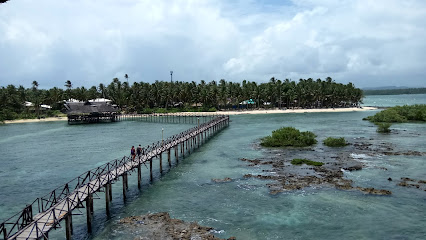
Big Belly Siargao
Discover the vibrant flavors of Siargao at Big Belly, a culinary haven offering delicious dishes in a welcoming atmosphere.
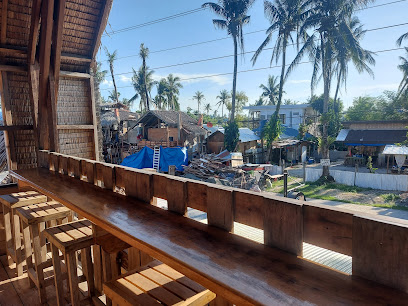
Magpopongko Rock Pools and Flats
Explore the stunning Magpopongko Rock Pools and Flats in Pilar, Philippines—where tranquility meets breathtaking natural beauty.
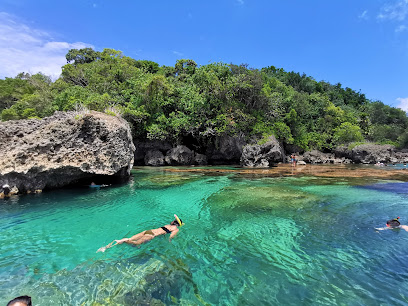
Shaka Cafe
Discover the vibrant flavors of Shaka Cafe, where healthy vegetarian meals meet stunning views of Siargao's Cloud 9 surf breaks.
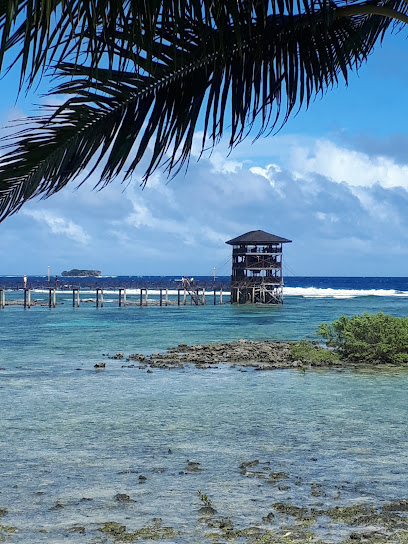
Siargao Island
Experience the beauty and adventure of Siargao Island, the Philippines' tropical paradise known for surfing, stunning beaches, and rich culture.
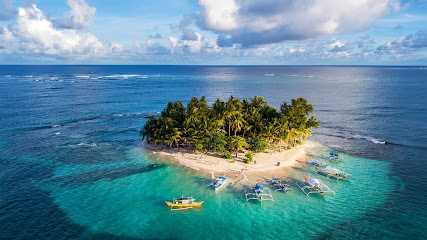
Sugba Lagoon
Experience the serene beauty of Sugba Lagoon in Del Carmen, a must-visit paradise for every traveler seeking adventure and tranquility in nature.
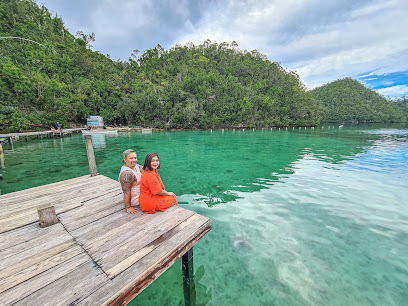
Maasin Bridge River Swing
Experience the thrill of swinging over crystal-clear waters at Maasin Bridge River Swing in Siargao, a must-visit destination for adrenaline junkies.
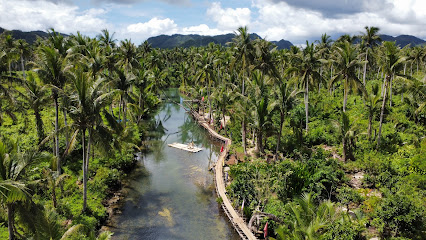
Bravo Beach Resort Siargao
Discover the ultimate tropical retreat at Bravo Beach Resort Siargao, where sun, surf, and serenity unite in paradise.
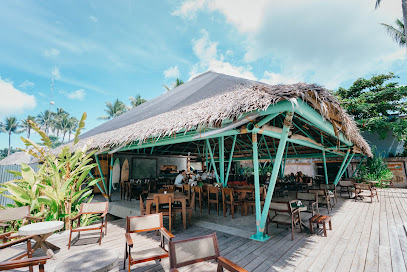
Coconut Trees View Deck
Discover the stunning beauty of Siargao from the Coconut Trees View Deck, where lush landscapes meet breathtaking vistas for an unforgettable experience.
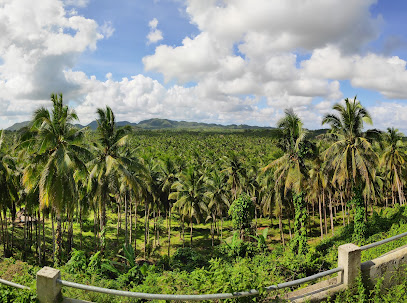
BARREL: Beachfront Sports Bar (Siargao)
Discover the vibrant beachside atmosphere of BARREL, Siargao's premier sports bar offering delicious food, refreshing drinks, and stunning ocean views.
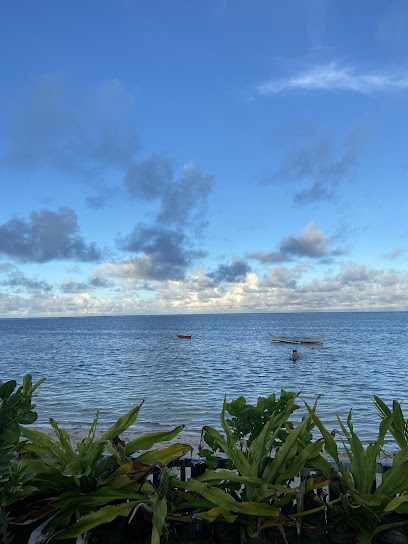
Mad Monkey Siargao
Experience the vibrant social scene and stunning beauty of Siargao at Mad Monkey Hostel, your ideal base for adventure in paradise.
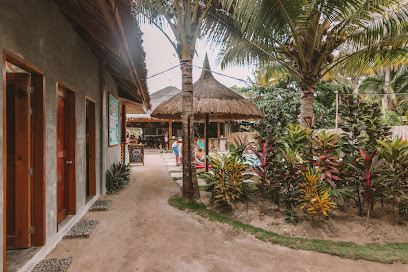
La Carinderia
Experience the culinary fusion of Italian and Filipino flavors at La Carinderia in General Luna, Siargao – a dining destination for every food lover.
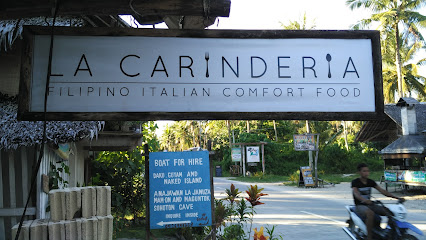
WHITE BEARD COFFEE SHOP
Experience the best of Siargao's coffee culture at White Beard Coffee Shop, where local flavors meet a cozy atmosphere amidst stunning island views.
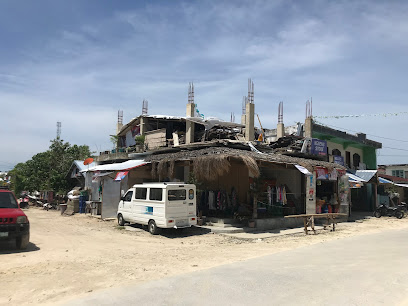
Harana Surf Resort
Experience the ultimate island getaway at Harana Surf Resort in Siargao, where stunning beaches meet thrilling surf adventures and mouthwatering local cuisine.
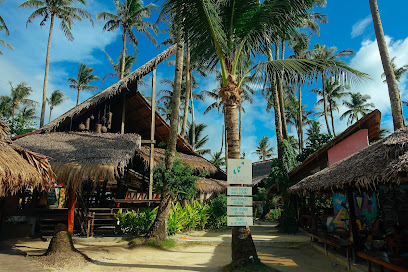
Spotted Pig Cafe
Experience the vibrant flavors and welcoming atmosphere of the Spotted Pig Cafe in General Luna, Surigao del Norte, a must-visit for all travelers.
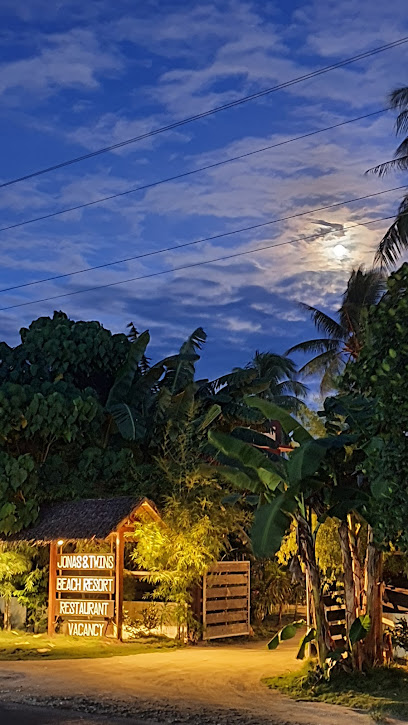
Unmissable attractions to see
Cloud 9 Surfing Area
Discover the thrill of surfing at Cloud 9, Siargao's iconic surf spot, where adventure meets breathtaking natural beauty.
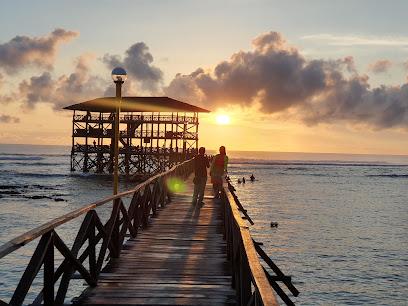
Sugba Lagoon Tour
Discover the breathtaking beauty of Sugba Lagoon, a tropical paradise in Del Carmen, Surigao del Norte, perfect for adventure and relaxation.
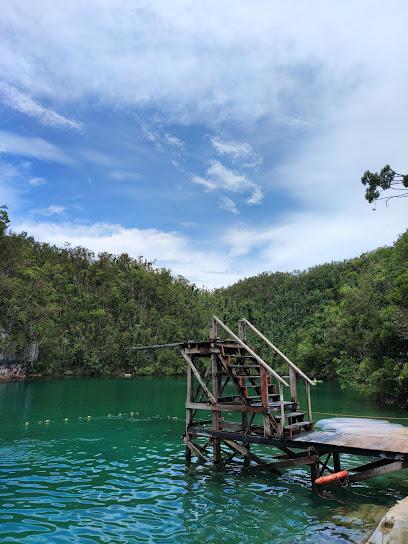
Maasin Bridge River Swing
Discover the exhilarating Maasin Bridge River Swing in Siargao, Philippines - a blend of adventure and breathtaking scenery awaits you.
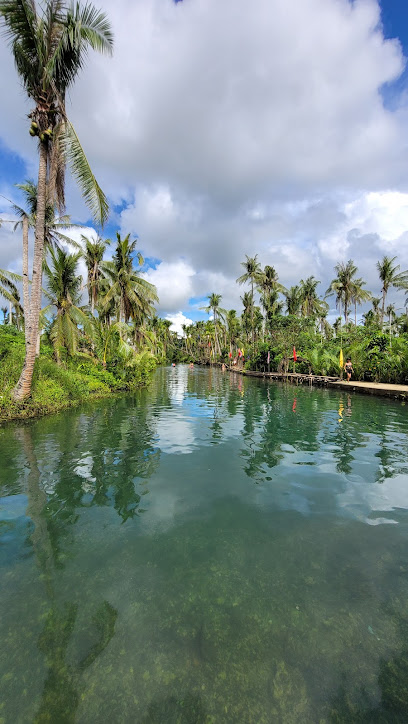
Coconut Plantation View Point
Experience unparalleled beauty at Coconut Plantation View Point in Siargao, where breathtaking views and tranquil surroundings await every visitor.
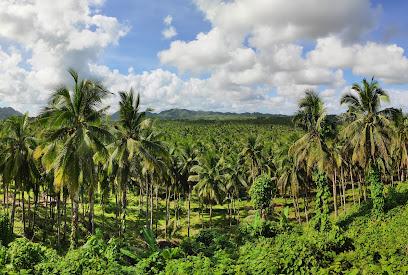
Naked Island
Explore Naked Island in Siargao, a pristine tropical escape with stunning beaches, crystal-clear waters, and unforgettable natural beauty.
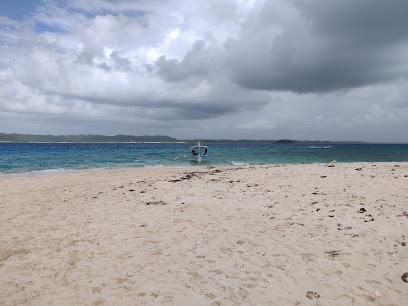
Magpopongko White Beach
Explore the breathtaking beauty of Magpopongko White Beach in Pilar, Philippines - a serene paradise for relaxation and adventure seekers alike.
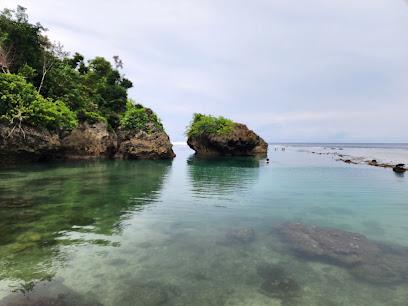
Tayangban Cave Pool
Explore Tayangban Cave Pool - A Hidden Oasis of Nature's Beauty in Siargao, Philippines.
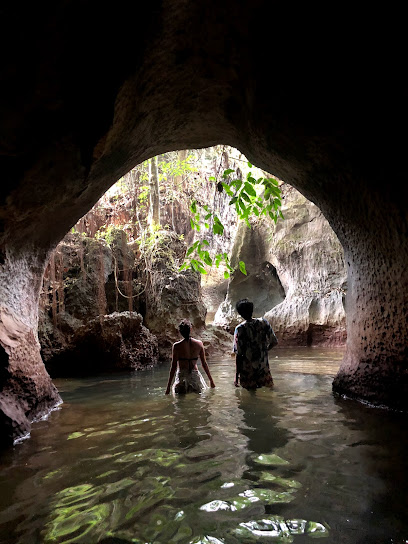
Alegria Beach
Experience the serene beauty of Alegria Beach in Surigao del Norte, a perfect getaway for relaxation, adventure, and stunning ocean views.
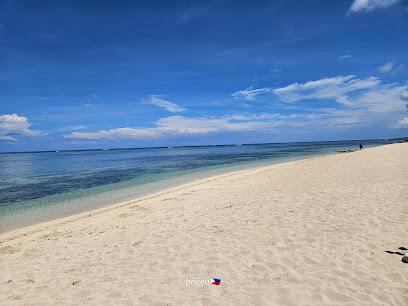
Guyam Island
Discover the serene beauty of Guyam Island, a tropical paradise in the Philippines, perfect for relaxation, adventure, and breathtaking natural scenery.
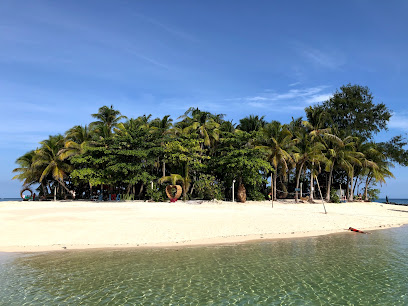
Guyam Island
Experience the serene beauty of Guyam Island in General Luna, a tropical paradise perfect for relaxation, adventure, and unforgettable moments.
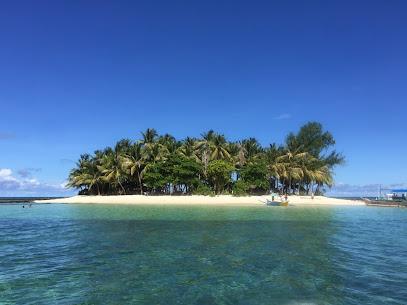
Alegria Beach
Experience the tranquility and natural beauty of Alegria Beach in Santa Monica, Surigao del Norte, a hidden gem for beach lovers and nature enthusiasts.
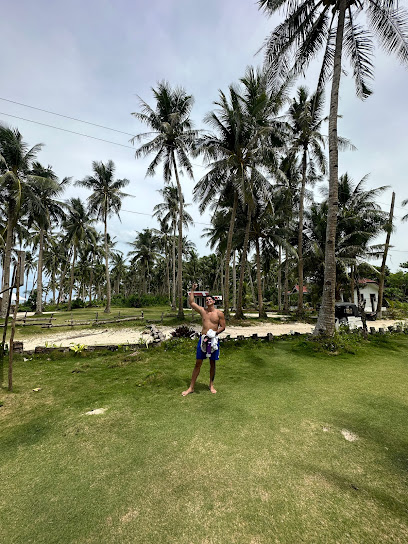
Sohoton Cove
Explore the stunning natural beauty and adventure of Sohoton Cove in Surigao del Norte, a must-visit paradise for eco-tourism and adventure lovers.
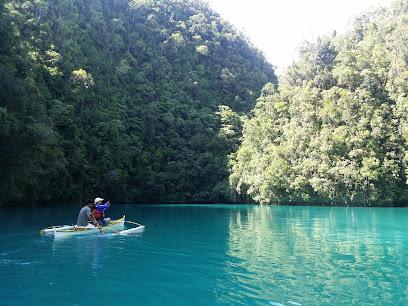
Taktak Falls
Explore the serene beauty of Taktak Falls in Santa Monica, Surigao del Norte, where nature's tranquility meets adventure in a stunning waterfall setting.
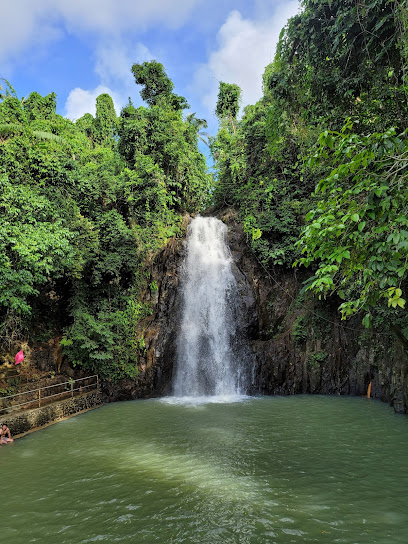
Cherinicole Beach Resort
Discover the serene beauty and vibrant local culture at Cherinicole Beach Resort, a tropical paradise in Siargao Island, perfect for relaxation and adventure.

Pamomoan Beach
Discover the breathtaking beauty of Pamomoan Beach in Del Carmen, Surigao del Norte, where pristine sands meet crystal-clear waters in a tropical paradise.
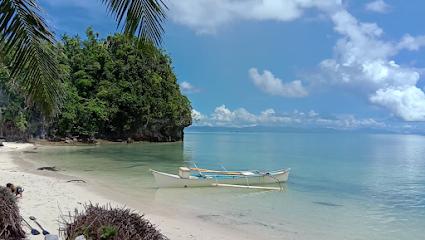
Essential places to dine
Big Belly Siargao
Discover Big Belly Siargao: A must-visit restaurant offering exquisite local and international cuisine in a vibrant island setting.
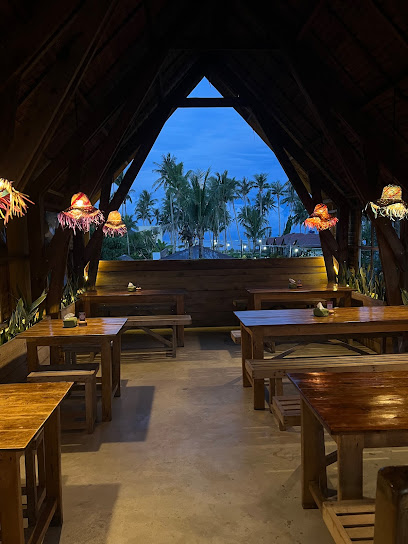
Shaka Cafe
Discover Shaka Cafe: A vibrant vegetarian eatery near Cloud 9 offering fresh dishes and stunning views in General Luna.
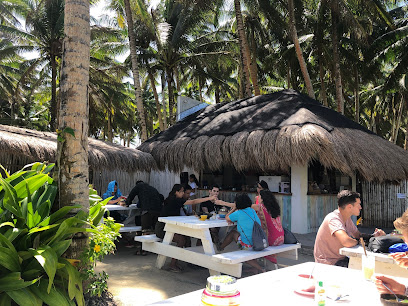
Bravo Restaurant
Experience delightful dining at Bravo Restaurant in General Luna, where local flavors meet stunning coastal views for an unforgettable culinary adventure.
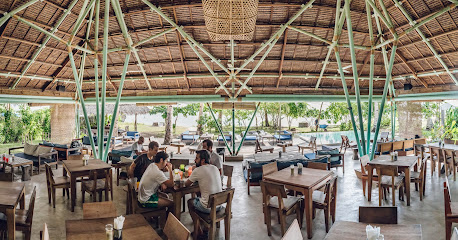
Kermit Surf Resort and Restaurant Siargao
Discover culinary delights at Kermit Surf Resort in Siargao - where Italian flavors meet surf culture amidst tropical paradise.
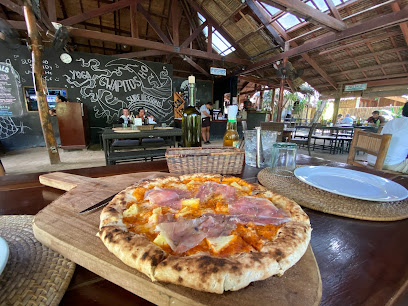
La Carinderia
Experience a delightful blend of Italian and Filipino flavors at La Carinderia in General Luna, Siargao – where every meal is a celebration!
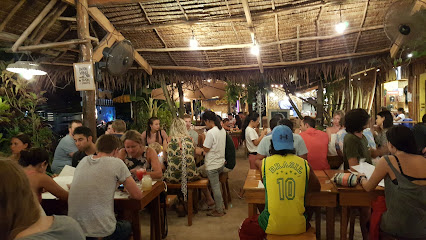
Goodies - Cafe, Restaurant Bar & Eco Shop
Discover Goodies in Siargao: A vibrant cafe offering healthy meals, refreshing drinks, and eco-friendly shopping amidst stunning island views.
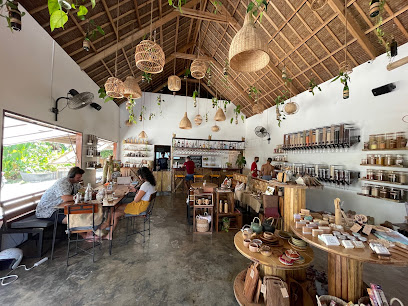
Kurvada
Discover Kurvada: A Culinary Gem in General Luna Offering Authentic Flavors and Stunning Views
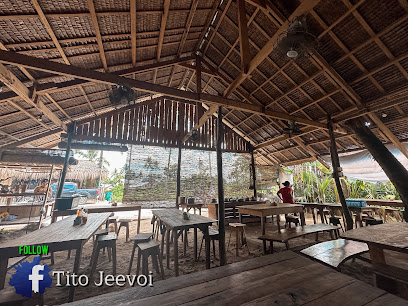
Dao Chow Siargao
Discover Dao Chow Siargao: A delightful restaurant offering fresh local cuisine amidst the stunning scenery of General Luna.
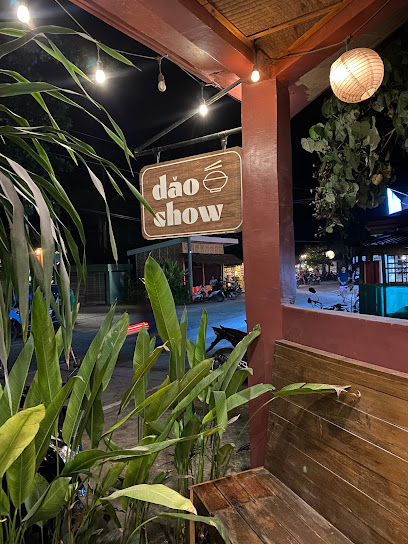
My Greek Taverna, The Best Mediterranean Greek Restaurant, Siargao
Experience authentic Mediterranean flavors at My Greek Taverna in Siargao - your destination for delicious Greek cuisine and warm hospitality.
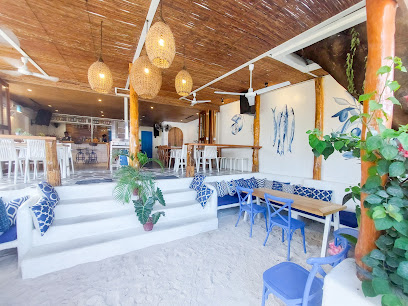
Isla Cusina
Experience authentic Filipino flavors at Isla Cusina in General Luna - a culinary gem offering fresh seafood and local delicacies.
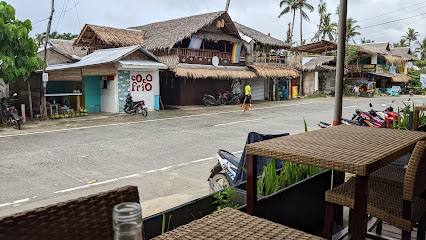
Cumin Siargao
Experience the vibrant flavors of Middle Eastern cuisine at Cumin Siargao, where culinary delights meet island paradise.
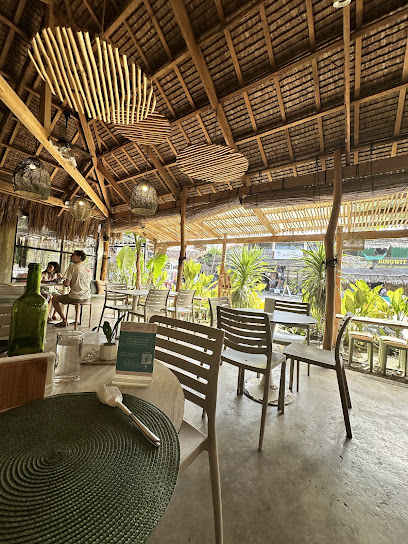
Loka Siargao Bar & Restaurant
Discover Loka Siargao Bar & Restaurant - where local flavors meet breathtaking views in the heart of General Luna.
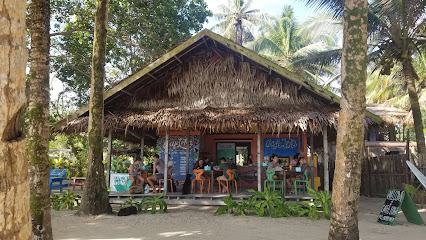
NĀGA Siargao
Experience exquisite flavors and vibrant ambiance at NĀGA Siargao - your culinary haven in General Luna.
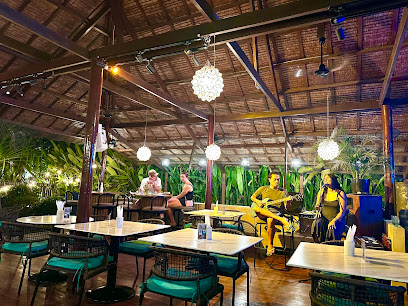
Cosmic Siargao - A Vegan Restaurant & Cafe
Experience the vibrant flavors of plant-based cuisine at Cosmic Siargao, where sustainability meets deliciousness in paradise.
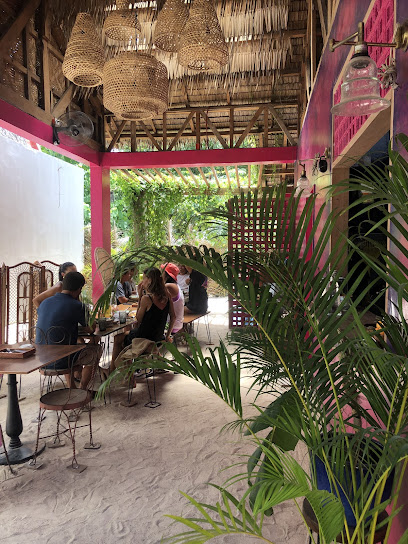
Happiness Restaurant Siargao
Experience delightful local flavors and vibrant ambiance at Happiness Restaurant Siargao - your culinary haven on this tropical paradise.
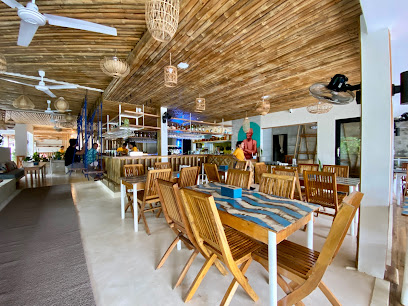
Markets, malls and hidden boutiques
Puregold Siargao
Discover Puregold Siargao, the ultimate supermarket for tourists in Dapa, Surigao del Norte, where affordability meets variety.
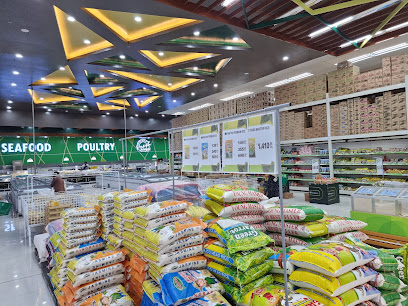
Coffee Stroll Siargao
Discover the charming Coffee Stroll Siargao, where quality brews meet a cozy atmosphere, perfect for relaxation and connection.
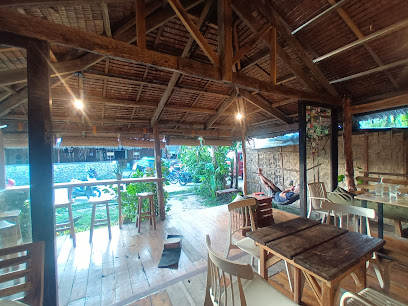
Vinta Alternative Market
Discover local craftsmanship and vibrant culture at Vinta Alternative Market in General Luna, Surigao del Norte.
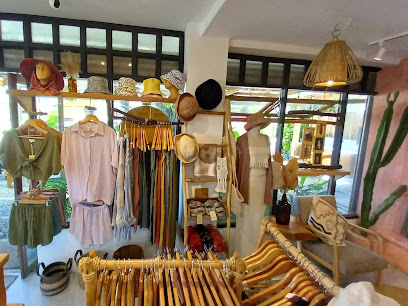
Downtown Surfshop
Discover the ultimate surf experience at Downtown Surfshop in Pacifico, Siargao, where adventure meets quality gear and local culture.
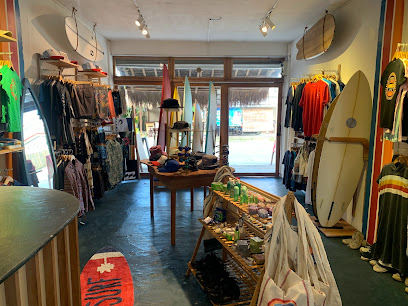
Langyaw
Discover Langyaw, General Luna's premier souvenir store, where unique Filipino crafts and gifts await to bring the spirit of the Philippines home.
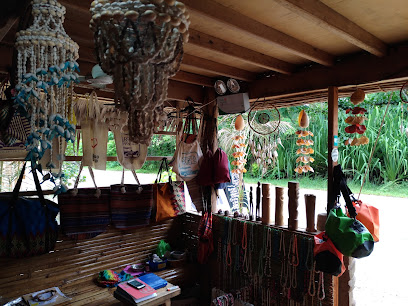
Gwapitos Apparel Store
Discover unique fashion at Gwapitos Apparel Store in General Luna, where local style meets contemporary trends for a memorable shopping experience.
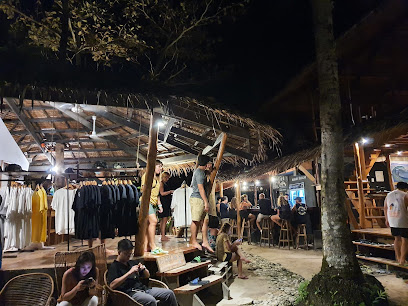
KS Boardriders Surf Shop
Discover the ultimate surf destination at KS Boardriders Surf Shop in Siargao - your one-stop shop for surf gear, beachwear, and local tips.
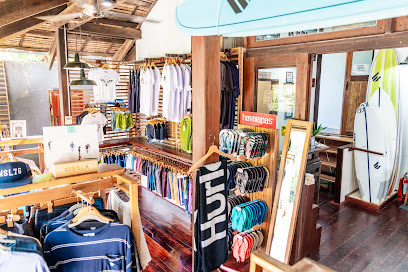
Siargao L&Y Jacking Horse Beginner's Surf Shop
Discover the thrill of surfing at Siargao L&Y Jacking Horse Beginner's Surf Shop, where expert instructors guide you through your aquatic adventure.
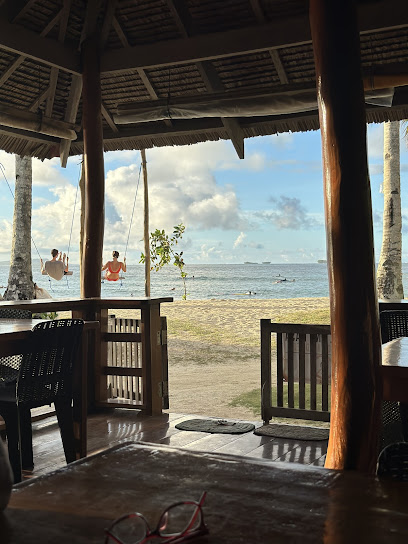
Raw Shop & Fishing Siargao
Experience the perfect blend of coffee and fishing at Raw Shop & Fishing Siargao, your go-to destination in General Luna for outdoor adventures and relaxation.
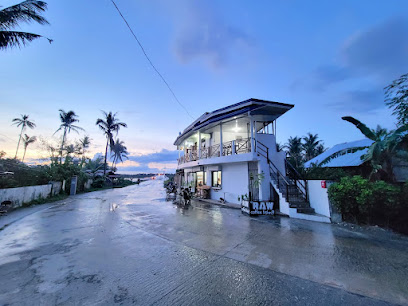
Primetivo
Explore Primetivo in General Luna for unique souvenirs and vibrant local art, reflecting the rich culture of Surigao del Norte.
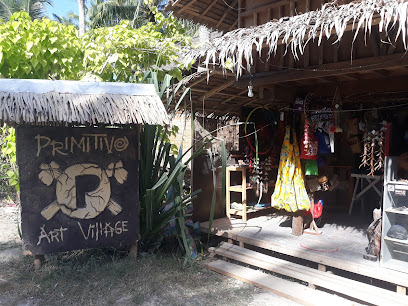
Shado Surf
Discover the thrill of surfing at Shado Surf in General Luna, your one-stop shop for surf gear and local expertise in the heart of paradise.
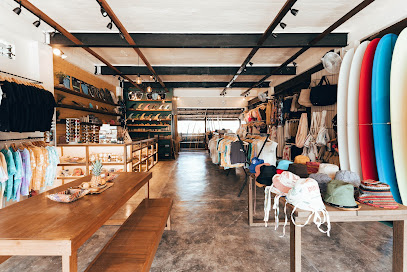
The Whale's Tale
Explore The Whale's Tale in Siargao for unique souvenirs that embody the island's spirit and culture, perfect mementos of your unforgettable journey.
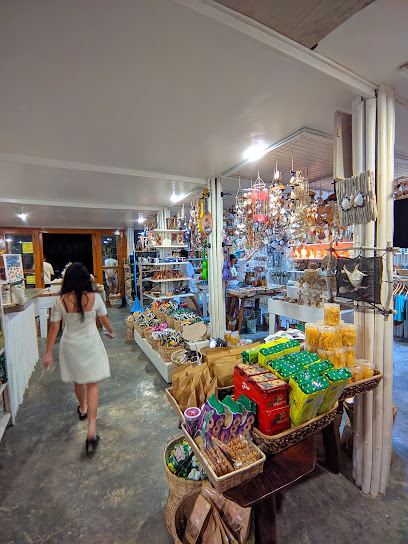
NOGS SOUVENIR SHOP
Explore NOGS Souvenir Shop in General Luna for authentic Filipino crafts and unique souvenirs reflecting local culture.
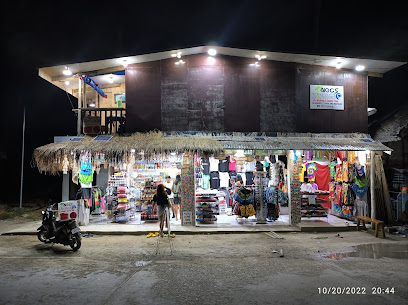
Bahandi
Discover Bahandi in General Luna for unique souvenirs that celebrate the rich culture and artistry of the Philippines.
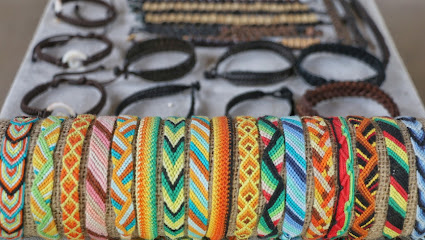
Bravo Shop & Skate Bowl
Discover the ultimate surf and skate experience at Bravo Shop & Skate Bowl, where adventure meets community in General Luna.
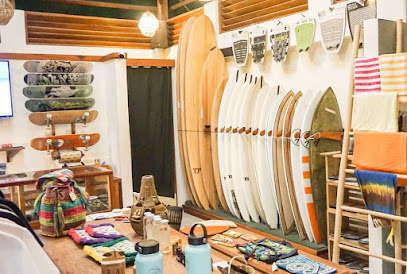
Essential bars & hidden hideouts
BARREL: Beachfront Sports Bar (Siargao)
Discover the lively BARREL: Beachfront Sports Bar in Siargao, where delicious food, refreshing drinks, and stunning ocean views await.
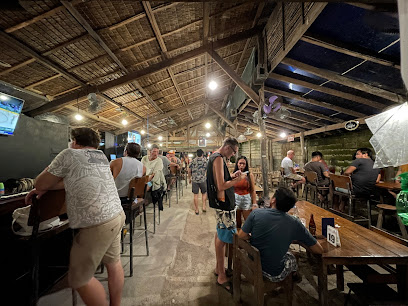
Manu
Discover Manu, Siargao's vibrant cocktail bar, where tropical flavors meet classic mixology in a stunning island setting.
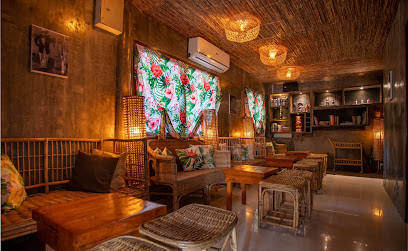
Barbosa Siargao
Experience the vibrant flavors and laid-back vibes of Barbosa Siargao, where local cuisine meets refreshing cocktails in a stunning tropical setting.
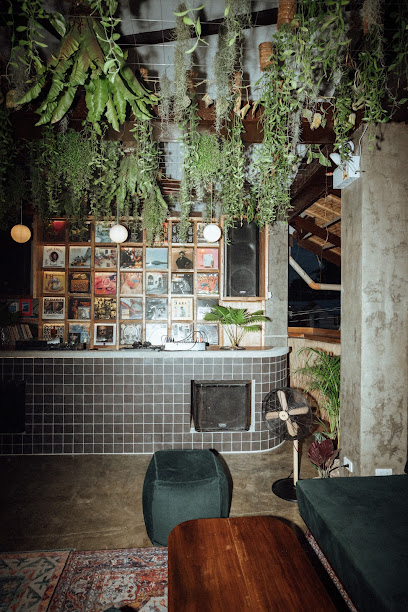
El Lobo Siargao
Experience the vibrant nightlife at El Lobo Siargao, the ultimate bar in General Luna for cocktails, music, and unforgettable island vibes.
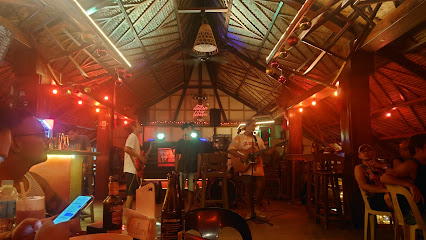
Fayeyeh Bar
Experience the vibrant nightlife at Fayeyeh Bar in General Luna, where delicious cocktails and a lively atmosphere await every traveler.
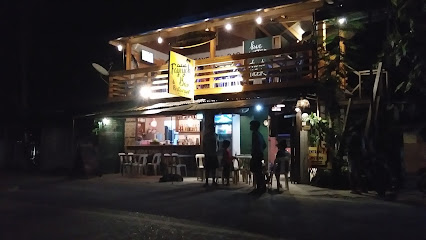
Mama Coco Siargao
Experience vibrant island life at Mama Coco Siargao, where delicious food and refreshing drinks meet tropical vibes.
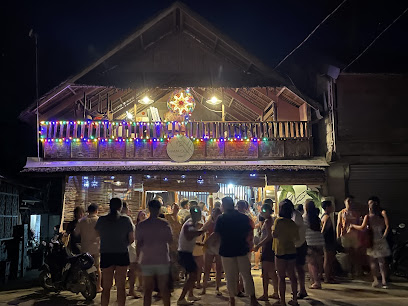
Explorers' Bar SIDARGO Siargao
Experience the vibrant culinary scene at Explorers' Bar SIDARGO in Siargao, where local flavors and lively atmosphere create unforgettable moments.
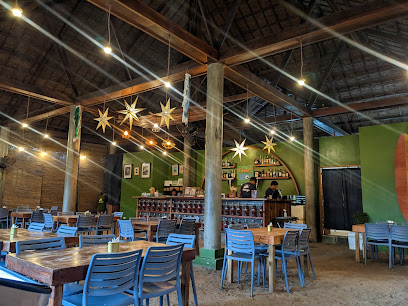
POP UP BAR SIARGAO
Experience the lively beachfront vibe at Pop Up Bar Siargao, where delicious cocktails and stunning ocean views await every visitor.
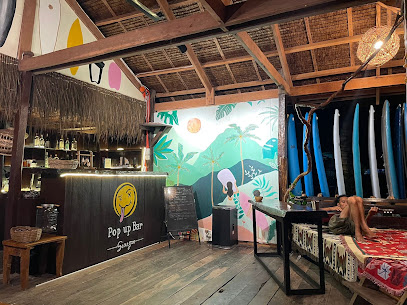
CHEERS N' SHOTS ISLAND RESTOBAR
Discover the vibrant flavors of Dapa at Cheers N' Shots Island Restobar, where delicious grilled dishes and refreshing drinks await every visitor.
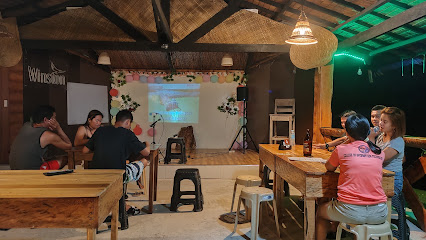
Bonnie Siargao
Experience the vibrant flavors of Spanish tapas in the heart of Siargao at Bonnie Siargao, a culinary destination in General Luna.
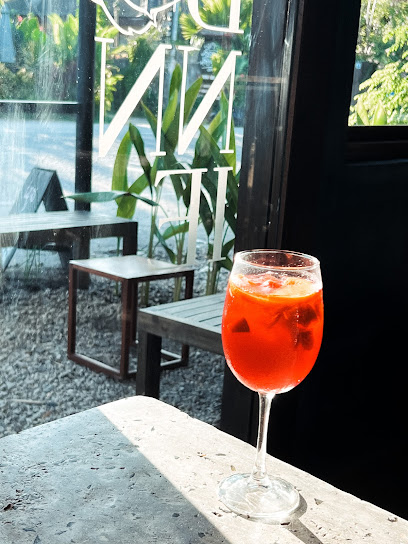
North Point Siargao
Discover the lively essence of Siargao at North Point Siargao, a premier live music bar offering vibrant entertainment and delightful drinks.
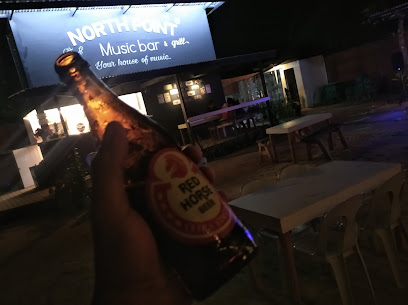
Hightide Restobar Siargao
Discover the vibrant culinary scene at Hightide Restobar in Siargao, where delicious food meets the enchanting beach vibe.
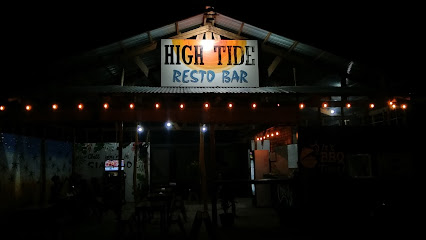
Banhaw Siargao
Discover the vibrant culinary and nightlife experience at Banhaw Siargao, where tropical flavors and lively entertainment await.
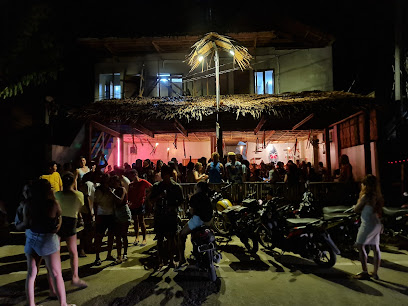
Boom's Siargao
Discover Boom's Siargao - a vibrant sports bar in General Luna, perfect for sports lovers and nightlife seekers alike.
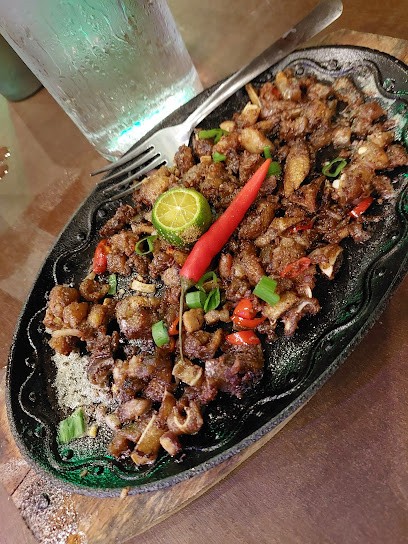
Local Phrases
-
- HelloKumusta
[koo-moo-stah] - GoodbyePaalam
[pah-ah-lahm] - YesOo
[oh-oh] - NoHindi
[hin-dee] - Please/You're welcomeManghinaon ka
[mang-hee-nown kah] - Thank youSalamat
[sah-lah-mat] - Excuse me/SorryPasaylo-a ako
[pah-sahy-loh-ah ah-koh] - How are you?Kumusta ka?
[koo-moo-stah kah] - Fine. And you?Maayo. Ikaw?
[mah-yoh. ee-kahw] - Do you speak English?Kasabot ka sa Ingles?
[kah-sah-boht kah sah een-ge-les] - I don't understandDili ko kasabot
[dee-lee koh kah-sah-boht]
- HelloKumusta
-
- I'd like to see the menu, pleaseGusto ko makakita sa menu, palihug
[goo-stoh koh mah-kah-kee-tah sah meh-noo, pah-lee-hoog] - I don't eat meatDili ko mankaon og karne
[dee-lee koh mahn-kah-on ohg kahr-neh] - Cheers!Tagay!
[tah-gahy] - I would like to pay, pleaseGusto ko mobayad, palihug
[goo-stoh koh moh-bah-yahd, pah-lee-hoog]
- I'd like to see the menu, pleaseGusto ko makakita sa menu, palihug
-
- Help!Tabang!
[tah-bahng] - Go away!Lakaw!
[lah-kahw] - Call the Police!Tawaga sa pulis!
[tah-wah-gah sah poo-lees] - Call a doctor!Tawaga sa doktor!
[tah-wah-gah sah dohk-tohr] - I'm lostNawala ko
[nah-wah-lah koh] - I'm illSakit ko
[sah-keet koh]
- Help!Tabang!
-
- I'd like to buy...Gusto ko molit-ag...
[goo-stoh koh moh-lee-tahg] - I'm just lookingNagtan-aw lang ko
[nahg-tahn-ahw lahng koh] - How much is it?Tagpila ni?
[tahg-pee-lah nee] - That's too expensiveMahal kaayo
[mah-hahl kah-ah-yoh] - Can you lower the price?Pwede pa-murahon ang presyo?
[pweh-deh pah-moo-rah-hohn ahng preh-syoh]
- I'd like to buy...Gusto ko molit-ag...
-
- What time is it?Unsa oras karon?
[oon-sah oh-rahs kah-rohn] - It's one o'clockAla una
[ah-lah oo-nah] - Half past (10)Sulod sa (napulo)
[soo-lohd sah (nah-poo-loh)] - MorningBuntag
[boon-tahg] - AfternoonHapon
[hah-pohn] - EveningGabii
[gah-bee] - YesterdayKagahapon
[kah-gah-hah-pohn] - TodayKaron
[kah-rohn] - TomorrowUgma
[oog-mah] - 1Usa
[oo-sah] - 2Duha
[doo-hah] - 3Tulo
[too-loh] - 4Upat
[oo-paht] - 5Lima
[lee-mah] - 6Unom
[oo-nohm] - 7Pito
[pee-toh] - 8Walo
[wah-loh] - 9Siyam
[see-yahm] - 10Napulo
[nah-poo-loh]
- What time is it?Unsa oras karon?
-
- Where's a/the...?Asa ang...
[ah-sah ahng] - What's the address?Unsa ang address?
[oon-sah ahng ah-drehs] - Can you show me (on the map)?Pwede mo ko pakita (sa mapa)?
[pweh-deh moh koh pah-kee-tah sah mah-pah] - When's the next (bus)?Kanus-a ang sunod (bus)?
[kah-noo-sah ahng soo-nohd (boos)] - A ticket (to ....)Usa ka ticket (paingon sa ....)
[oo-sah kah tee-keh (pah-eeng-ohn sah)]
- Where's a/the...?Asa ang...
History of Siargao
-
Before the arrival of the Spanish in the Philippines, Siargao was inhabited by indigenous tribes who thrived on fishing, farming, and trading with neighboring islands. These early inhabitants developed a rich culture and social structure, with unique traditions and customs that were passed down through generations.
-
In the 16th century, Spanish explorers arrived in the Philippines, including Siargao. The island was gradually integrated into the Spanish colonial empire, with missionaries converting the local population to Christianity. Spanish influence is still evident today in the island's architecture, religious practices, and place names.
-
During World War II, Siargao was occupied by Japanese forces. The island saw significant military activity, including air raids and battles between Japanese and Allied forces. The war had a profound impact on the local population, leading to loss of life and disruption of daily life.
-
In the late 20th century, Siargao gained international recognition as a premier surfing destination. The discovery of the now-famous Cloud 9 wave attracted surfers from around the world, leading to a surge in tourism and development. This period marked a significant transformation in the island's economy and lifestyle.
-
In recent years, Siargao has experienced rapid development, with new resorts, restaurants, and infrastructure projects. However, there has also been a growing awareness of the need to preserve the island's natural beauty and cultural heritage. Conservation efforts have been implemented to protect Siargao's unique ecosystems and promote sustainable tourism.
Siargao Essentials
-
Siargao can be reached via Sayak Airport (IAO), located in Del Carmen. Daily flights connect from Manila (Ninoy Aquino International Airport) and Cebu (Mactan-Cebu International Airport). Upon arrival, you can take a van or tricycle to your accommodation. Alternatively, you can reach Siargao by ferry from Surigao City, which is accessible by plane or bus from other major cities in the Philippines.
-
Getting around Siargao is typically done via motorbike rentals, which are affordable and convenient for exploring the island. Tricycles and habal-habal (motorcycle taxis) are also available for short trips. For those who prefer comfort, vans and private cars can be rented. Bicycles are another eco-friendly option, especially for short distances.
-
The official currency is the Philippine Peso (PHP). While some higher-end hotels and restaurants accept credit cards, many local establishments prefer cash. ATMs are available in General Luna and Dapa, but it's advisable to carry sufficient cash, especially if you plan to visit more remote areas.
-
Siargao is generally safe for tourists. However, standard precautions are recommended. Avoid leaving valuables unattended and be cautious when walking alone at night. While crime rates targeting tourists are low, it is always best to stay vigilant and aware of your surroundings. Petty theft can occur, particularly in crowded areas.
-
In case of emergency, dial 911 for immediate assistance. There are medical facilities in General Luna and Dapa, including pharmacies for minor health issues. It is advisable to have travel insurance that covers medical emergencies. Local police stations are also available for assistance.
-
Fashion: Do wear light, breathable clothing, but avoid overly revealing attire, especially in more conservative areas. Religion: Do respect local customs and religious sites. Dress modestly when visiting churches. Public Transport: Do be respectful and polite to drivers and other passengers. Don't haggle aggressively. Greetings: Do greet locals with a smile or a nod. A handshake is also common. Eating & Drinking: Do try the local cuisine and accept food offerings graciously. Don't waste food, as it is considered disrespectful.
-
To experience Siargao like a local, visit the local markets in General Luna for fresh produce and seafood. Engage with the locals, who are friendly and often willing to share their knowledge about the island. Don't miss out on local activities such as surfing at Cloud 9, island hopping, and exploring the mangroves in Del Carmen. Try local delicacies like 'pan de surf' and 'kinilaw'.
Trending Landmark in Siargao
-
Cloud 9 Surfing Area
-
Big Belly Siargao
-
Magpopongko Rock Pools and Flats
-
Shaka Cafe
-
Siargao Island
-
Sugba Lagoon
-
Maasin Bridge River Swing
-
Bravo Beach Resort Siargao
-
Coconut Trees View Deck
-
BARREL: Beachfront Sports Bar (Siargao)
-
Mad Monkey Siargao
-
La Carinderia
-
WHITE BEARD COFFEE SHOP
-
Harana Surf Resort
-
Spotted Pig Cafe
Nearby Cities to Siargao
-
Things To Do in Camiguin
-
Things To Do in Bohol
-
Things To Do in Cagayan de Oro
-
Things To Do in Cebu City
-
Things To Do in Davao City
-
Things To Do in Legazpi
-
Things To Do in Boracay
-
Things To Do in Zamboanga City
-
Things To Do in Tagaytay
-
Things To Do in Manila
-
Things To Do in Puerto Princesa
-
Things To Do in Angeles City
-
Things To Do in Palawan
-
Things To Do in Subic
-
Things To Do in Baguio








